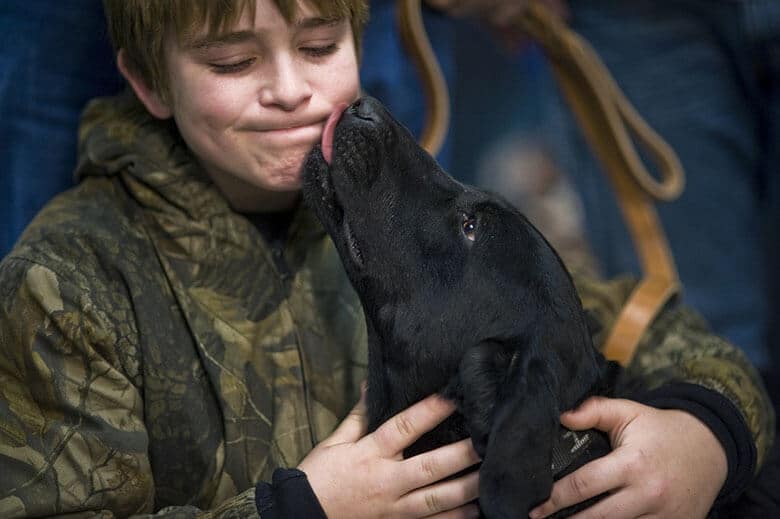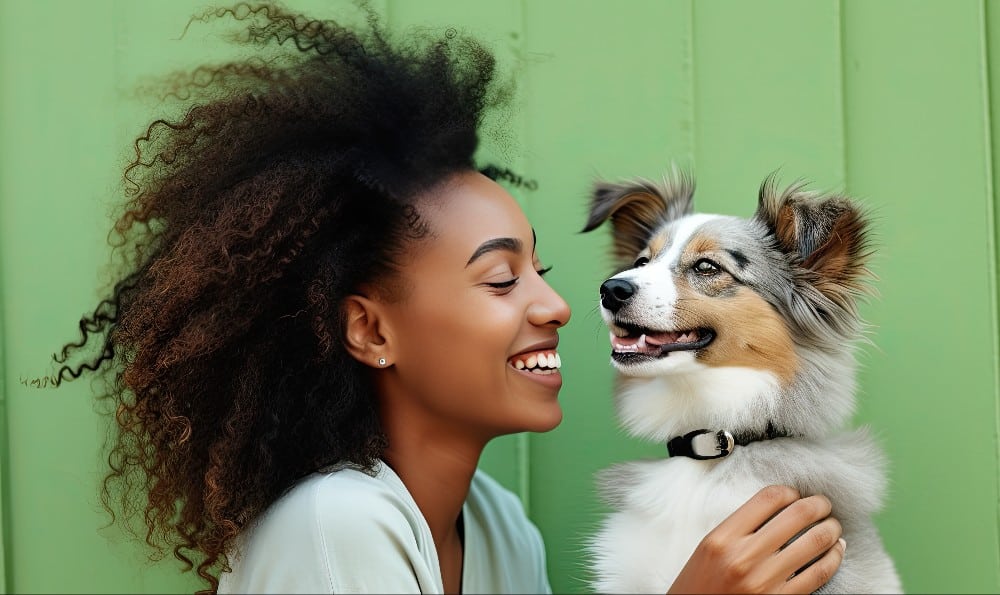There’s a good reason dogs are called “man’s best friend”; they love us with an intensity and obsession that is singular to the animal kingdom. There is no welcome like a dog’s when you return home after a long day at work — or from a trip to the mailbox.
A team of researchers set out to explore the connection between genetics and complex behaviors, including the reasons why dogs are so uniquely social towards their human companions — and how this trait evolved with domestication.
They sequenced a region on chromosomes 6 in dogs and found multiple sections of canine DNA that are associated with differences in social behaviors. In many cases, the research found an insertion of genes is strongly linked to the inclination to “seek out humans for physical contact, affection, information, and assistance.”
Related: Women Understand ‘Dog Talk’ Better Than Men
In humans, however, it is a deletion in these genes rather than insertions that causes Williams-Beuren Syndrome, which is characterized (among other traits including developmental delay) by a gregarious personality and an extreme interest in other people.
“We measured hypersocial behavior, one aspect that is central to William-Beuren syndrome in humans,” Bridgett M. vonHoldt, an evolutionary biologist at Princeton University and one of the authors of the study, told This Dog’s Life. “If the mutations we find do actually increase sociability towards humans, this could likely provide a fitness advantage to wolves that were ‘friendlier’ and involved in the original dog domestication.”
Related: First Dog Breeders Ever Revealed
In other words, wolves that were friendly to humans tended to live longer than wolves that were not. It’s likely, says vonHoldt, that we shaped dogs’ behavior to be very focused on humans. “It is easy to image how a wolf that is tolerant or even seeks out proximity to humans would pose less of a threat to human safety, and may even enhance the fitness of the ‘friendly’ wolf.”
If the mutations in genetics that are associated with friendliness are found in wolf populations, says vonHoldt, it is possible that these wolves who were more acclimated to human civilization would pass on those genes to their puppies.
“I’m fascinated with these mobile genetic elements and feel they are still under appreciated as playing a role in trait evolution,” says vonHoldt. “I also think our finding of genetic variation in both dogs and wolves provides a possible insight into animal personality, and may even suggest similar genes may have roles in other domestic species (maybe cats even!).”
Adam Boyko, a biologist who studies dog genetics at the Cornell University College of Veterinary Medicine, told The New York Times that the work “may be one of the first studies to ever identify the specific genetic variants that were important for turning wolves into dogs.”
While these findings are interesting, there is more work to be done Both Boyko and vonHoldt believe that additional research needs to be conducted on a larger and more diverse group.
Related: Prescription for a Happy Marriage? Cute Dog Photos.



















